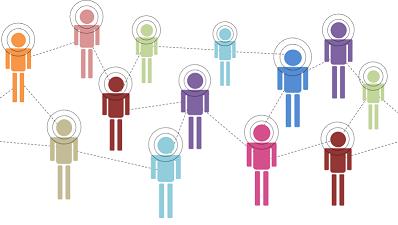With the end to my eMarketing subject only a week away, it has made me reflect on what I have learnt over the past 12 weeks. Although I knew I wasn’t tech savvy when I started, I still thought I had a basic knowledge of the digital space. Well it turned out that I was an amateur compared to some of the geeks I met, with Wags being the biggest geek of them all (I do say ‘geek’ as an endearment). Although I was present on Facebook, that was about my limit.
 Throughout the semester I was exposed to the wonderful world of eMarketing, making me see that eMarketing is the way of the future. Its ability to engage consumers and becomes a part of their everyday life shows the penetration of this form of marketing. Consumer generated content allows everyday people to create their own content and share it with others. In previous posts I have discussed how companies are becoming more aware of the power of consumer generated content and are incorporating it into their own campaigns.
Throughout the semester I was exposed to the wonderful world of eMarketing, making me see that eMarketing is the way of the future. Its ability to engage consumers and becomes a part of their everyday life shows the penetration of this form of marketing. Consumer generated content allows everyday people to create their own content and share it with others. In previous posts I have discussed how companies are becoming more aware of the power of consumer generated content and are incorporating it into their own campaigns.For my generation, eMarketing is just an extension of what we already know. As my tutor Josh said “you all know the answer, it’s just a case of unlocking it”. And it is so true. Every day we are using the internet, whether it be social media sites such as Facebook, YouTube, etc; reading emails; or simply surfing the web. As consumers we know what works for us and what doesn’t in terms of gaining our attention. We can use this knowledge of personal use of the internet and social media to then apply it to a marketing arena. I think the hardest thing understands the medium; one that is understood, the rest is easy.
The main thing I take out of this experience is two-way communication. Digital mediums enable marketers to, rather than talk at consumers, talk with them, creating a two-way conversation that helps build meaningful relationships between consumers and brands. eMarketing enables brands to become more human, especially through the use of social media, as consumers interact with the brand.
Through this semester my learning curve for the digital space has been exponential. It has opened my eyes to the opportunities that eMarketing creates and the untapped potential that is still out there for companies and individuals to make use of. It has truly been a great 12 weeks and a great subject to finish my degree with.





